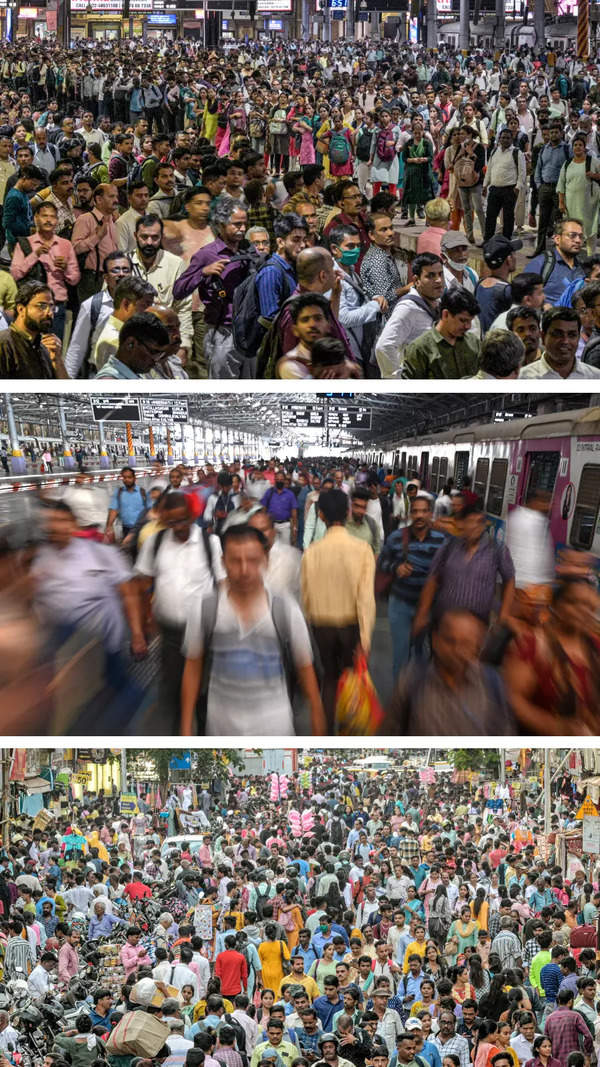- News
- City News
- chennai News
- Chennai's Alandur bus depot has worst air
Trending Topics
Chennai's Alandur bus depot has worst air

Greater Chennai Corporation has been asked to reduce road dust by black-topping all roads and maintaining them pothole free
CHENNAI: Alandur bus depot is Chennai's and Tamil Nadu's the most polluted location in 2023 with PM10 concentrations averaging 102 micrograms per cubic metre a month when it should not be more than 45. And PM2.5 concentrations were between 30 and 112 in the last four months when they should not exceed 15 micrograms per cubic metre.
This data, on the real-time dashboard of the National Clean Air Programme (NCAP), highlights Chennai's deteriorating air quality. The data is collected from nine air quality monitors of the Tamil Nadu Pollution Control Board and three monitors of the central board.
A four-year analysis of the NCAP data since its launch in 2018 showed that PM10 concentrations in Chennai had increased since 2019. Now the TNPCB has submitted to the central agency an action plan to make Chennai, Trichy, Madurai and Tuticorin pollution free within three years.
Under it, the Greater Chennai Corporation has been asked to reduce road dust by black-topping all roads and maintaining them pothole free. "Greening of traffic corridors, open areas, vertical gardens, will all be increased across the city. Road dust and silt will be removed using mechanical sweepers, water fountains at major traffic intersection and development of non-motorised transport corridors have been suggested," said R Kannan, member-secretary, TNPCB. In fact, the GCC has embarked upon a major park renovation and sapling plantation drive in the past two months.
Introduction of CNG/ LNG buses, adoption of e-vehicles, development of multilayer car parking, regular checking of vehicular emissions, strengthening public transport, introducing non-motorised transport, widening roads, and creating infrastructure for pedestrians will be priority.
"As an advisory board, we have regularly conducted district/city level implementation committee meetings under the chairmanship of collector/ commissioners of the respective city to review implementation of CPCB-approved city action plan by the various stake holders. We will also improve the real-time monitoring of the pollution parameters in the coming months," Kannan said.
Apart from this, emissions from solid waste burning and dumping will be reduced promised, said N Mahesan, GCC deputy commissioner. The corporation that gets ₹181 crore every year under this programme from the Centre as grant. In 2021, these funds were utilized for infrastructure projects. In 2022, they were allotted for interventions to reduce pollution.
This data, on the real-time dashboard of the National Clean Air Programme (NCAP), highlights Chennai's deteriorating air quality. The data is collected from nine air quality monitors of the Tamil Nadu Pollution Control Board and three monitors of the central board.
A four-year analysis of the NCAP data since its launch in 2018 showed that PM10 concentrations in Chennai had increased since 2019. Now the TNPCB has submitted to the central agency an action plan to make Chennai, Trichy, Madurai and Tuticorin pollution free within three years.
Under it, the Greater Chennai Corporation has been asked to reduce road dust by black-topping all roads and maintaining them pothole free. "Greening of traffic corridors, open areas, vertical gardens, will all be increased across the city. Road dust and silt will be removed using mechanical sweepers, water fountains at major traffic intersection and development of non-motorised transport corridors have been suggested," said R Kannan, member-secretary, TNPCB. In fact, the GCC has embarked upon a major park renovation and sapling plantation drive in the past two months.
Introduction of CNG/ LNG buses, adoption of e-vehicles, development of multilayer car parking, regular checking of vehicular emissions, strengthening public transport, introducing non-motorised transport, widening roads, and creating infrastructure for pedestrians will be priority.
"As an advisory board, we have regularly conducted district/city level implementation committee meetings under the chairmanship of collector/ commissioners of the respective city to review implementation of CPCB-approved city action plan by the various stake holders. We will also improve the real-time monitoring of the pollution parameters in the coming months," Kannan said.
Apart from this, emissions from solid waste burning and dumping will be reduced promised, said N Mahesan, GCC deputy commissioner. The corporation that gets ₹181 crore every year under this programme from the Centre as grant. In 2021, these funds were utilized for infrastructure projects. In 2022, they were allotted for interventions to reduce pollution.
Start a Conversation
FOLLOW US ON SOCIAL MEDIA
FacebookTwitterInstagramKOO APPYOUTUBE










